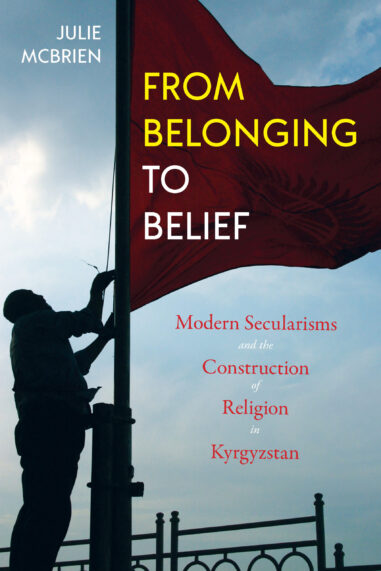From Belonging to Belief presents a nuanced ethnographic study of Islam and secularism in post-Soviet Central Asia, as seen from the small town of Bazaar-Korgon in southern Kyrgyzstan. Opening with the juxtaposition of a statue of Lenin and a mosque in the town square, Julie McBrien proceeds to peel away the multiple layers that have shaped the return of public Islam in the region. She explores belief and nonbelief, varying practices of Islam, discourses of extremism, and the role of the state, to elucidate the everyday experiences of Bazaar-Korgonians. McBrien shows how Islam is explored, lived, and debated in both conventional and novel sites: a Soviet-era cleric who continues to hold great influence; popular television programs; religious instruction at wedding parties; clothing; celebrations; and others. Through ethnographic research, McBrien reveals how moving toward Islam is not a simple step but rather a deliberate and personal journey of experimentation, testing, and knowledge acquisition. Moreover she argues that religion is not always a matter of belief—sometimes it is essentially about belonging.
From Belonging to Belief offers an important corrective to studies that focus only on the pious turns among Muslims in Central Asia, and instead shows the complex process of evolving religion in a region that has experienced both Soviet atheism and post-Soviet secularism, each of which has profoundly formed the way Muslims interpret and live Islam.


